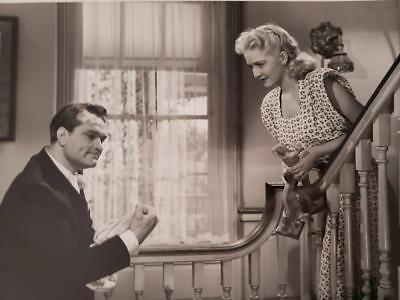
In 1947 and 1948 Metro-Goldwyn-Meyer produced two low budget comedy vehicles for contract star Red Skelton. The first of these was The Show Off directed by Harry Beaumont and the second was Merton Of The Movies directed by Robert Alton. Fellow contract player and long time Skelton collaborator Virginia O’Brien also appears in both films, featuring heavily in the plot of Merton Of The Movies as Skelton’s love interest.
None of Skelton’s films had a very high production value. Thankfully, as Skelton progressed in films his obligatory gag scenes became more naturally integrated into the narrative of the film (1953’s The Clown is perhaps the finest example of this). MGM’s writers had the unfortunate problem of writing scenes that could feature Skelton’s voice acting talents. On the whole, these scenes feel more forced than his slapstick gag sequences, being better suited for Skelton’s radio show. Often these moments disrupt the narrative flow of the film entirely.
Strangely enough, The Show Off features neither component mentioned above. Instead, Skelton is allowed to perform, albeit over the top, as a character actor with his routines firmly grounded in the narrative (his routines are comparatively much more withdrawn as well). His performance in The Show Off is void of the trappings of his radio and clown shows. Where as Merton Of The Movies cannot escape them. So often it seems a slapstick gag has been hastily placed in a scene, reaching for some sort of comedic overkill (even when Buster Keaton is originating the gags).
The struggle to integrate Skelton’s act into the narrative of a film is probably why Skelton’s best remembered pictures are those where he is part of an ensemble, such as Du Barry Was A Lady (1943), Bathing Beauty (1944) and Neptune’s Daughter (1949). These musicals adopt the structure of a vaudeville revue, a medium much more adept at showcasing Skelton’s talents.
